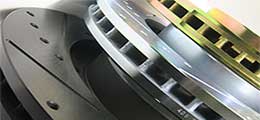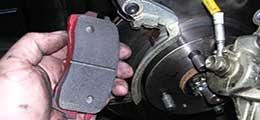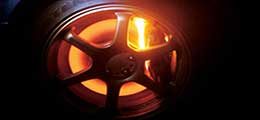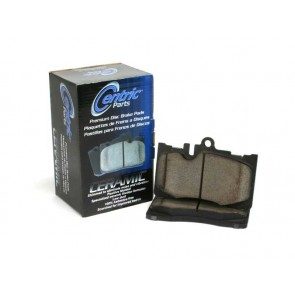Ceramic Brake Pads
-
1961 Mercedes Benz 300SE (W112) Premium Ceramic Brake Pads
Premium Ceramic brake pads. Fits: 1961 Mercedes Benz 300SE (W112) ATE Rear Caliper Learn MoreFromFrom $24.97 -
1961 Mercedes Benz 300SEB (W108) Premium Ceramic Brake Pads
Premium Ceramic brake pads. Fits: 1961 Mercedes Benz 300SEB (W108) ATE Rear Caliper Learn MoreFromFrom $24.97 -
1961 Mercedes Benz 300SEC (W112) Premium Ceramic Brake Pads
Premium Ceramic brake pads. Fits: 1961 Mercedes Benz 300SEC (W112) ATE Rear Caliper Learn MoreFromFrom $24.97 -
1962 BMW 1500 Premium Ceramic Brake Pads
Premium Ceramic brake pads. Fits: 1962 BMW 1500 Learn MoreFromFrom $24.97 -
1962 Mercedes Benz 300SE (W112) Premium Ceramic Brake Pads
Premium Ceramic brake pads. Fits: 1962 Mercedes Benz 300SE (W112) ATE Rear Caliper Learn MoreFromFrom $24.97 -
1962 Mercedes Benz 300SEB (W108) Premium Ceramic Brake Pads
Premium Ceramic brake pads. Fits: 1962 Mercedes Benz 300SEB (W108) ATE Rear Caliper Learn MoreFromFrom $24.97 -
1962 Mercedes Benz 300SEC (W112) Premium Ceramic Brake Pads
Premium Ceramic brake pads. Fits: 1962 Mercedes Benz 300SEC (W112) ATE Rear Caliper Learn MoreFromFrom $24.97 -
1963 BMW 1500 Premium Ceramic Brake Pads
Premium Ceramic brake pads. Fits: 1963 BMW 1500 Learn MoreFromFrom $24.97 -
1963 BMW 1800 Premium Ceramic Brake Pads
Premium Ceramic brake pads. Fits: 1963 BMW 1800 Learn MoreFromFrom $24.97 -
1963 Mercedes Benz 300SE (W112) Premium Ceramic Brake Pads
Premium Ceramic brake pads. Fits: 1963 Mercedes Benz 300SE (W112) ATE Rear Caliper Learn MoreFromFrom $24.97
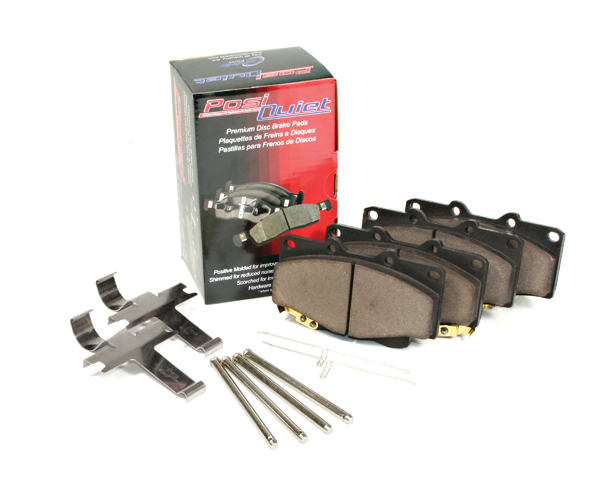
Depending on your driving habits and the application of your vehicle, there are many types of brake pads or brake pad materials that may cater best to your needs. Ceramic brake pads are highly popular because they are an “all around” brake pad and there are no major disadvantages relating to their use. For example, when we talk about their advantages in regard to environmental friendliness, wear, noise, and stopping ability, ceramic brake pads have all the desired properties.
Brake pads used to be made with asbestos, which is a strong mineral fiber that has good heat resistant properties. But, since asbestos can cause negative health effects in humans, most brake pad manufactures have completely stopped using asbestos and relied on other materials with useful properties for braking, such as ceramic. Ceramic brake pads are not 100 percent ceramic, but are generally mixed with copper fibers (hence the brown color) and are a ceramic compound.
Compared to other brake pad compounds, ceramic brake pads are the longest wearing. This is due to ceramic brake pads being a less abrasive material than metallic brake pads or semi-metallic brake pads. However, compared to metallic or semi-metallic brake pads, ceramic brake pads do not match in stopping power. But, this isn’t to say that ceramic brake pads do not perform well. Ceramic brake pads have stable performance across a wide temperature range. So no matter the weather conditions, hot or cold, you can rely on ceramic brake pads for consistent performance.
Ceramic brake pads are quieter and generally do not make any noise because the frequencies of their vibrations are lower than the human ears can hear. With all of the advantages ceramic brake pads have to offer, this brake pad is perfect for everyday, street drivers. For applications that require more stopping power and a higher heat threshold (such as track use, towing, hauling or fleet service), we recommend a harder material like metallic or semi-metallic brake pads.
Cquence currently offers Posi Quiet ceramic brake pads for most vehicle applications. Below is a graph of how Posi Quiet ceramic brake pads rate on various qualities from one through ten, ten being excellent and one being poor.
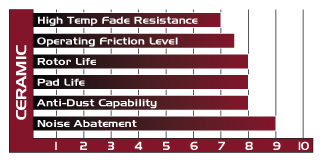
- Minimal amounts of dust
- Great friction levels
- Consistent Performance across a wide temperature range
- Chart is relative to usage



